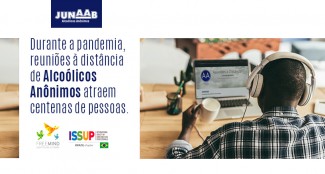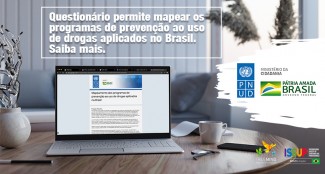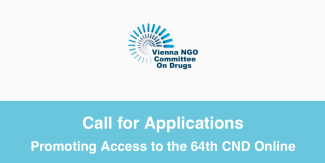Search
Why harmful drinkers reject change coping & cognition in maintaining heavy drinking
Abstract
Public Health England identifies approximately 600,000 dependent drinkers as the target treatment population. However, they identify an additional 1.3 million ‘harmful’ drinkers who do not have serious dependency but are drinking...
‘Dangerous Data’ Part 8: Controlled Drinking: What Do the Authorities Say? An Effectiveness Bank Hot Topic
‘DANGEROUS DATA’ PART 8: CONTROLLED DRINKING: WHAT DO THE AUTHORITIES SAY?
Official guidance on controlled drinking as a treatment goal from Britain’s National Institute for Health and Care Excellence, how the National Treatment Agency for...
In Their Own Right: Family Members Affected by Alcohol and other Drug Misuse or Gambling
AFINet’s first Webinar was given by Professor Richard Velleman on 20th October 2020. The topic of this Webinar was “In Their Own Right: Family Members Affected by Alcohol and other Drug Misuse or Gambling”.
Professor Velleman examined the...
Even at a distance, Alcoholics Anonymous is a key help
Alcoholics Anonymous: distance meetings attract hundreds of people
Even with the restrictions caused by the pandemic, Alcoholics Anonymous were able to adapt to the circumstances and did not interrupt their basic service: helping...
Evidence and Implementation of family-based interventions in the addiction field
Dr Gallus Bischof presented AFINet’s second Webinar on “Evidence and Implementation of family-based interventions in the addiction field”.
Dr Bischof described and reported the results of a systematic review on the evidence of...
Teleintervenção fundamentada na entrevista motivacional para familías que convivem com um parente com problemas por consumo de álcool e outras Drogas
Cassandra Borges Bortolon, a Clinical Psychologist, Postgraduate Professor in Cognitive-Behavioural Therapy, Director of Acurarte, President of AMTEPA, Founder of the Acurartech Company, and an Independent Research Consultant, presented...
Internet‐Based Therapy versus Face‐To‐Face Therapy for Alcohol Use Disorder: A Randomized Controlled Non‐Inferiority Trial
Abstract
Background and aims
Most people with alcohol use disorder (AUD) are never treated. Internet‐based interventions are effective in reducing alcohol consumption and could help to overcome some of the barriers to people not seeking...
Psychosocial factors associated with the use of psychoactive substances in adolescents in Pereira, Colombia
summary
introduction:
The use of psychoactive substances is a public health problem with high prevalence in adolescents, a situation that influences individual and social development in adulthood.
objective:
Determine psychosocial...
Harm Reduction via Online Platforms for People who Use Drugs in Russia
This research investigates how web outreach work is being used as a tool for delivering some harm reduction services to people who use drugs (PWUD) either partially or completely online and for engaging new clients (including hard-to-reach...
International Association for the Study of Pain
"Reviews of preclinical research and clinical safety and efficacy of cannabis and cannabinoids for pain relief have identified important research gaps. Due to the lack of high-quality clinical evidence, the International Association for the...
Mapeamento dos programas de prevenção ao uso de drogas aplicados no Brasil
Um questionário para mapeamento dos programas de prevenção ao uso de drogas que têm sido implantados no Brasil foi elaborado numa parceria entre o Programa das Nações Unidas para o Desenvolvimento (PNUD), a Universidade Federal de São Paulo...
7 Tips to Engage in Mental Health Treatment the Guatemalan Maya Families Living in the United States
Source: https://mhttcnetwork.org/sites/default/files/2020-09/7tips_maya_Families_V2.pdf
Publication Date: August 1, 2020
Developed By: National Hispanic and Latino MHTTC
Guatemalans were the sixth-largest Hispanic group living in the...
A Delphi yarn: applying Indigenous knowledges to enhance the cultural utility of SMART Recovery Australia
Background: Mutual support groups are a popular treatment for substance use and other addictive behaviours. However, little is known about the cultural utility of these programmes for Indigenous peoples.
Methods: A three-round Delphi study...
A multi-methods yarn about SMART Recovery: First insights from Australian Aboriginal facilitators and group members
SMART Recovery is a popular mutual support group program. Little is known about its suitability or perceived helpfulness for Indigenous peoples. This study explored the cultural utility of SMART Recovery in an Australian Aboriginal context...
SALIS / AMHL CONFERENCE
CONFERENCE
5th Annual Joint SALIS/AMHL Conference
42nd Annual SALIS Conference
April 27 – 29, 2021 (Virtual)
Information Professionals:
Building Back Better in the Post Pandemic World
The current pandemic has shaken up the...
Call for Applications Promoting Access to the 64th CND Online
Deadline for Applications: 28th March at 23.45 CET
From 12-16 April 2021, for the first time ever, the main session of the UN Commission on Narcotic Drugs – including its Plenary, Committee of the Whole, side events, etc – will be accessed...
Psychopathological co-morbidity in a drug-dependent population in alentejo
Co-morbidity or dual diagnosis is established by the World Health Organization (WHO) as the 'co-occurrence in the same individual of a dysfunction of psychoactive substance use and other psychiatric disorder' (WHO, 1995). There is a growing...
European Internet search on the use of | materials edEOS
The purpose of these practices is to collect scientific data on substance abuse exclusively in people over the age of 18 who have tried/used substances in the last 12 months.
Its Greek arm is implemented and coordinated by the ECB/EPIPSY...
The Role of Public Organisations in Providing Assistance to Users of Psychoactive Substances: The Experience of Ukraine
Share the Knowledge: ISSUP members can post in the Knowledge Share – Sign in or become a member




